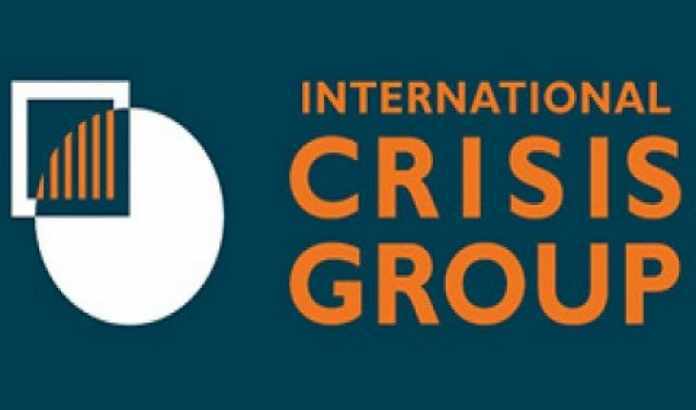Russia Is Expanding Its Influence in the Central African Republic
12/10/2021

Over the past few years, Russia has rapidly expanded its influence in the Central African Republic (CAR), using military support to become President Touadera's closest ally. Prone to coups and riots, the CAR has been engulfed in conflict for more than 20 years. In the republic, which has the lowest life expectancy in the world, the number of internally displaced persons has risen to a record 722 thousand, another 733 thousand live abroad as refugees. More than 60 percent of the population, or 3.1 million of the 5 million people, need an urgent relief. In some parts of the Northwest, people face famine-like conditions. Although the government wields authority in the capital Bangui, it is largely absent from the provinces, where insurgents and armed groups exercise their own form of predatory rule, according to a Crisisgroup study.
Disappointed by the inability of UN peacekeepers to extend the mission, in 2017 Touadera turned to Russia for weapons and military instructors to bolster CAR’s shambolic army, involving a private military company Wagner Group. Moscow claims that it has no ties to Wagner, saying it is a private company that is free to sell its services to other sovereign governments as it sees fit. But Wagner is widely believed to be managed and financed by Yevgeny Prigozhin, who is close to the Kremlin and under U.S. sanctions for attempted meddling in the 2016 U.S. elections. In 2020, the U.S. Treasury Department also imposed sanctions on companies and people working on Prigozhin’s behalf “to advance Russia’s influence in the Central African Republic”. Prigozhin has denied any links to Wagner/
At first, Central Africans greeted Moscow's support, hoping that Russia would succeed in tamping down the country’s conflict where other foreign nations had failed. However, their enthusiasm has waned due to Touadera's outsized reliance on Russian advisers, and his government's tendency to stifle dissent and accusations of human rights abuses in the counter- insurgent campaign. Rather than eradicating armed groups, the contractors are perpetrating abuses that increasingly drive violence in the provinces and fuel guerrilla warfare against government troops by rebels.
In March, the UN Working Group on Mercenaries first sounded the alarm over the Wagner’s activities. It received reports of summary executions, torture and forced disappearances. In June, a UN expert panel accused Russian instructors and CAR soldiers of large-scale looting, use of excessive force and indiscriminate killing.
The government's opaque relations with Russia and the secrecy surrounding Wagner's involvement have driven a wedge between it and its traditional donors, the EU, the United States and France. The CAR relies on Western donors to provide more than half of its state budget of $ 496 million. At the same time, some donors have set strict conditions for future payments due to fears that funds or equipment could fall into the hands of unaccountable private soldiers. For example, MINUSCA stopped supplying the army with fuel after finding evidence that mercenaries used it for their own equipment. So now the CAR must balance the benefits of Russia's military and political support with the prerogative of Western financial support, on which it will continue to depend.
Vitriolic media campaigns have created further divisions. Ahead of the 2020 elections, Russia and France accused each other of trolling their role in the CAR. This even forced Facebook to suspend hundreds of fake accounts linked to Russian and French authorities. Small street protests against the Economic Community of Central African States, France and MINUSCA regional bloc coincided with a swell of online content maligning CAR's neighbors and other foreign partners, while celebrating Russia's role in the “liberation” of the country.
Much of this content reflects Central Africans' support for Russia's political and military involvement. Therefore, due to disinformation, France suspended budget support for the CAR government.
Of greatest concern is Touadera's desire to rebuild the devastated economy of the Central African Republic in the interests of Russian business. Military offensives are concentrated in areas rich in minerals. This raises suspicions that the government is more interested in protecting the country's diamonds and gold than in protecting the civilian population. The conflict over the CAR's mineral resources may be exacerbated by fears that the government will hand over to Wagner the control of production areas. It was in 2018, the year of the arrival of the Wagner group, that the government granted a license to mine gold and diamonds to the Russian company Lobaye Invest SARLU. The United Nations says the two companies are “interconnected” and Russian media links Lobaye directly to Prigozhin.
So Touadera is facing a difficult choice with Wagner. The Wagner group defended him against a coup attempt and, for the first time in decades, changed the balance of power on the ground in favor of the government. But despite Wagner's unprecedented achievements on the battlefield, serious abuses committed by mercenaries and security forces risk causing even greater war. Difficult as it may be, Touadera will have to work with rebel leaders to alleviate the suffering of the villagers and to put an end to hostilities. And Touadera's first priority should be to ensure a unilateral ceasefire in order to deliver humanitarian aid. The government must also take steps to curb provocative content in social media and local newspapers to defuse the tense political atmosphere. Given Russia's experience with online influence, many suspect that the spread of misinformation is due to its presence in the CAR.
Finally, there is a clear need for a unified policy among all external partners in the CAR. After all, most partner countries and international institutions see the government's use of unaccountable foreign mercenaries as an obstacle to ending the conflict.
Touadera's political fate increasingly depends on Russia (and Wagner), and there is little prospect of him changing his course. Yet, the CAR's Western partners should continue to press for more transparency in his policies.
